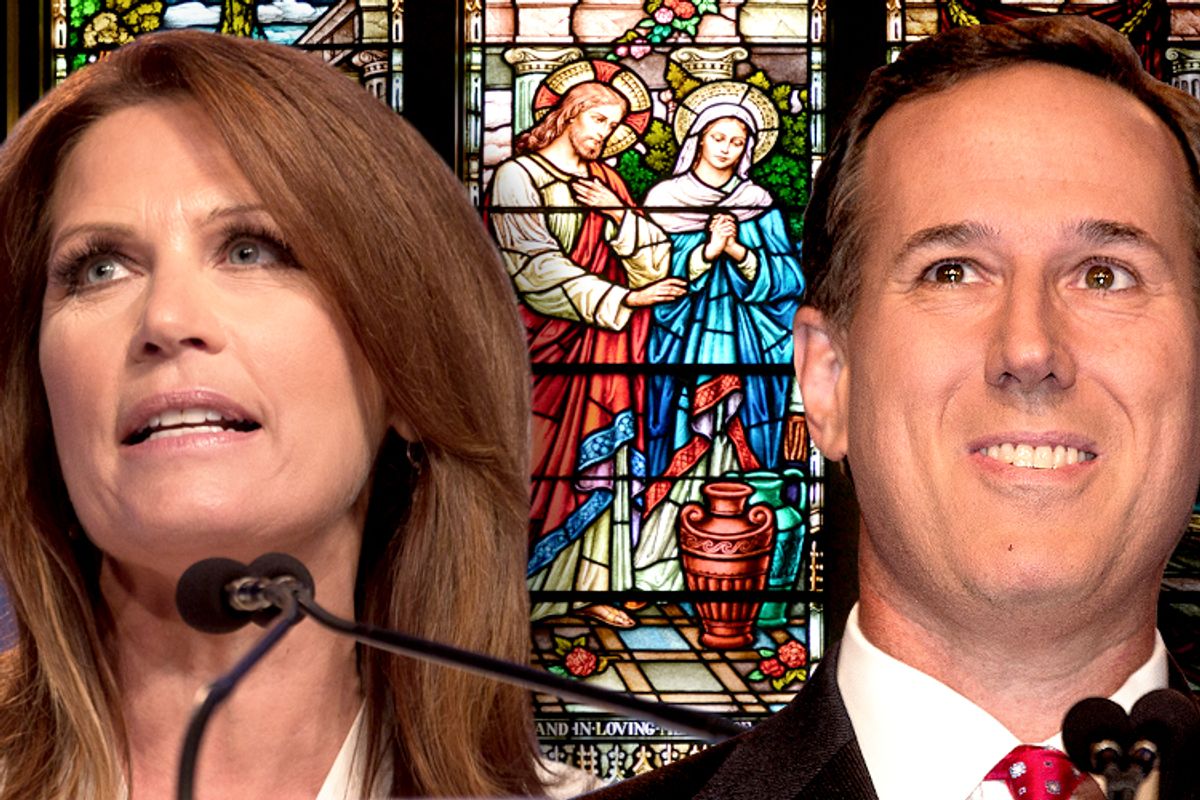Rep. Randy Forbes is not happy. The Republican Party is not actively discriminating against gay congressional candidates as much as he'd like, and social conservatives like Forbes are fed up. He’s lashing out because he fears his brand of social conservatism is dying, and has no idea what to do about it. I’m a Republican, so I think Forbes’ crusade is not only politically stupid, it’s also undermining the very social conservative values that he purports to champion.
Today, "social conservatism" has come to mean fighting the demographically lost battle against same-sex marriage, and the legally lost battle against abortion. No ideology has narrowed in such a startling way. The culprit? Social conservatism. As a Republican who supports things like fewer abortions, I think it’s unfortunate that socially conservative means aren’t in line with socially conservative ends.
The best example is marriage equality, which conservatives have been battling now for over a decade. What’s odd about this fight is the extent to which gay rights activists have donned the trapping of family values (sometimes to criticism from those on the left). Go to the Human Rights Campaign website, and you’ll see talk of religion and faith, adoption and foster care, commitment, parenting, and of course marriage. These are often considered fundamentally conservative values — so why aren’t conservatives celebrating rather than fighting them? The answer, of course, is the historical and religious opposition to homosexuality. For better or worse (I think worse), this religious-based view is undermining the simple conservative belief in the importance of marriage and family.
That’s not the only instance where social conservatism undercuts itself. Take abortion. Social conservatives believe that the number of abortions should be reduced or eliminated (I agree). Yet, social conservatives support a host of policies — such as abstinence-only education and limiting access to contraception — that will actually increase abortion.
Similarly, conservatives often rail against the effects of single parenthood. Yet what policies have conservatives supported that would curb single parenthood? In fact, opposition to increasing the prevalence and knowledge of contraception surely leads to more single parents. Likewise, the war on drugs — which social conservatives have longed championed — has devastated families in low-income communities, while, in my view, also undermining core Republican values like personal freedom. By incarcerating vast swaths of men, the war on drugs has turned into a war on families and a war on liberty. My hope is that social conservatives lead the Republican Party in rethinking this battle.
Finally, conservatives believe in the power of religion. Yet, when churches push sharply conservative views — most notably anti-gay views — that are anathema to the younger generation, they also push people away from church. Here again we find that one prong of conservatism is working to undermine another.
In other words, conservatism’s commitments to religion, stable families and fewer abortions are undermined by commitments against pre-marital sex, contraception, decriminalized drugs and homosexuality.
So what now?
No movement can continue such an incoherent existence. Ultimately it may not be a matter of choice for the party. Old attitudes are dying — both figuratively and literally. Opposition to homosexuality, premarital sex and birth control is plummeting rapidly. To survive, a 21st century version of social conservatism needs to embrace core values, and desert religious-based ideologies of the past.
At the very least, conservatives need to consider how different policy goals interact. They shouldn’t necessarily have to favor decriminalizing all drugs or backing the Obama administration’s contraception mandate, but they should at least work through how these positions affects the broader socially conservative outlook. And they certainly should not favor policies that can only be justified on religious grounds.
A growing contingent in the Republican Party is challenging it to evolve with the times, particularly on gay rights: Republican donors are forming groups designed to support pro-LGBT equality Republicans; a buddy and I started a blog chronicling the Republican Party’s movement on the issue; extreme social conservatives are losing elections. It may seem like the Republican Party can't evolve on any issues, but it's sort of like watching the hour hand of an analog clock -- we're making progress, it's just hard to see.
Incidentally, there’s a reason you don’t much hear many Republicans talking about their social views these days: they hardly know what to say. It also explains why Rep. Forbes is so outraged. He fears that the Republican Party must turn towards a more coherent — and less doctrinaire — version of social conservatism. He’s right — and as a Republican, I couldn’t be happier.

Shares